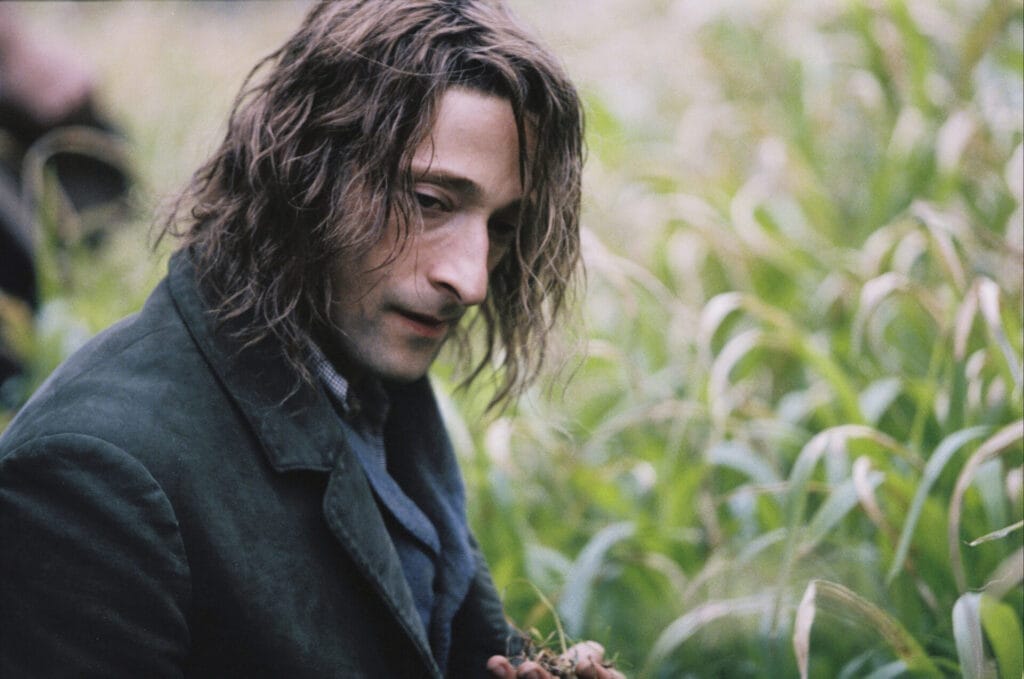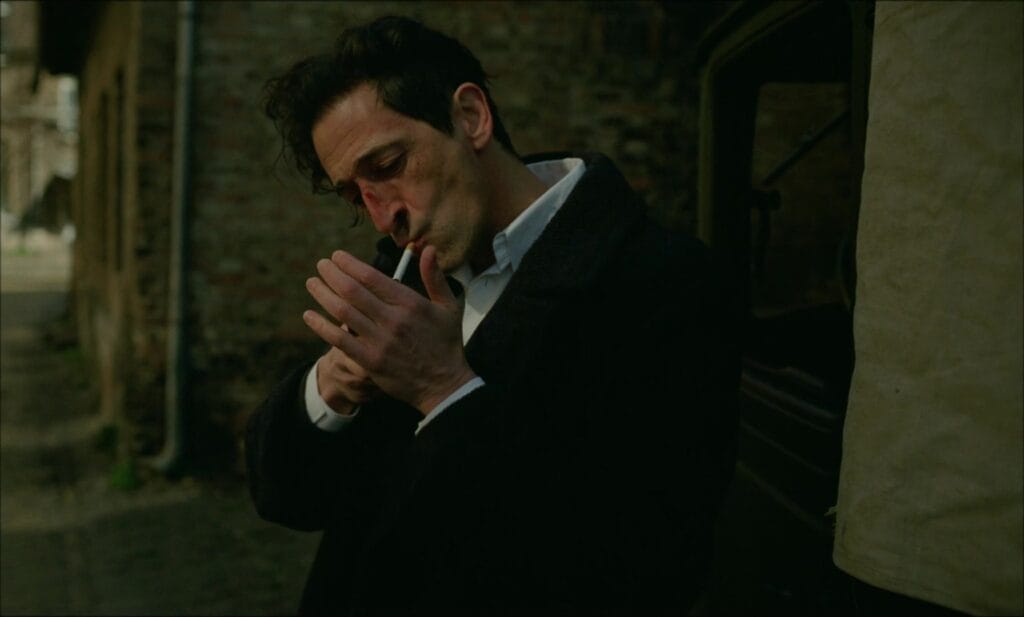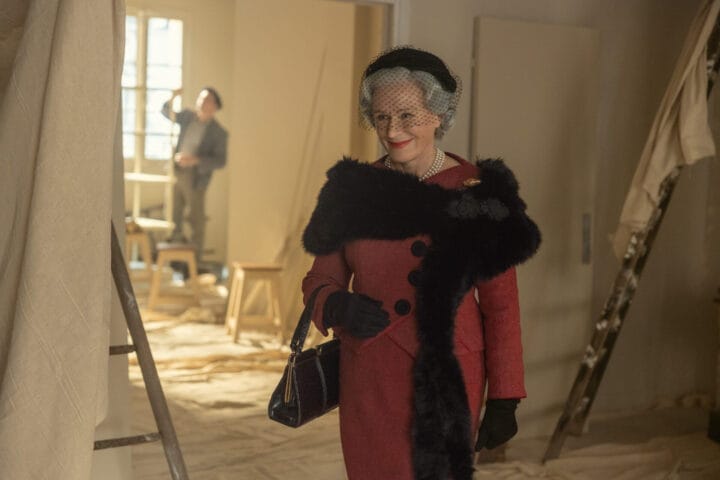Explore the journey of the two-time Academy Award winner, his transformative roles, deep family connections, and life beyond the screen.
A Second Oscar Seals a Unique Legacy
Adrien Brody cemented his place in Hollywood history on March 2, 2025, by winning his second Academy Award for Best Actor. His compelling portrayal of László Tóth, a visionary Hungarian architect haunted by his past in the period epic The Brutalist, earned him the prestigious statuette at the 97th Academy Awards. This victory came more than two decades after his first Oscar win, marking a remarkable return to the pinnacle of acting recognition.
The win solidified Brody’s reputation as an actor capable of profound immersion and enduring impact. It also placed him in a unique category: he became the first leading actor to win two Oscars on his first two nominations, joining an elite group of performers with a perfect win record in their nominated categories. His first win, for Roman Polanski’s The Pianist in 2003 (for the 2002 film year), was itself historic. At just 29 years old, Brody became the youngest person ever to win the Best Actor Oscar, a record he still holds. That performance, like his turn in The Brutalist, involved portraying a character grappling with the horrors and aftermath of the Holocaust, suggesting a powerful connection between his heritage and his most acclaimed work. These two defining roles, bookending over twenty years of a diverse career, highlight an actor drawn to complex, deeply human stories, often demanding extraordinary commitment.
Queens Roots and Creative Seeds: An Artistic Upbringing
Adrien Nicholas Brody was born on April 14, 1973, in Woodhaven, Queens, New York City. He grew up as the only child in a household steeped in creativity and intellectual curiosity. His mother, Sylvia Plachy, is a celebrated Hungarian-born photographer, and his father, Elliot Brody, is a retired history professor and a painter. This environment undoubtedly planted the seeds for Adrien’s own multifaceted artistic journey.
From a young age, Brody was immersed in the arts. He often accompanied his mother on her photography assignments for the Village Voice, an experience he credits with making him feel comfortable being observed and in front of the camera – an invaluable asset for a future actor. His father, descended from Polish Jews who lost family members in the Holocaust, provided a connection to history and resilience, while his mother, who fled Hungary with her parents following the 1956 Soviet crackdown, offered a direct link to the immigrant experience. Plachy herself was raised by a Catholic father and a Jewish mother who also suffered losses during the Holocaust. This rich, complex heritage, combining artistic sensibility with profound historical awareness, would deeply inform Brody’s life and work. His parents enrolled him in acting classes partly to offer a constructive outlet in their neighborhood, but an early interest in performance was already evident – he performed magic shows at children’s parties as “The Amazing Adrien,” finding a gateway into performance through illusion and storytelling.

Education and Early Career: Forging a Path
Nurturing his burgeoning interest, Brody pursued formal acting training. He attended the prestigious Fiorello H. LaGuardia High School of Music & Art and Performing Arts in New York, known for honing young talent, and also studied at the American Academy of Dramatic Arts. His passion was clear early on; by age thirteen, he had already appeared in an Off-Broadway play. His screen debut came in the 1988 PBS television film Home at Last, followed by a small part in the Francis Ford Coppola-directed segment of the anthology film New York Stories (1989). He also landed a regular role on the short-lived CBS sitcom Annie McGuire in 1988. After high school, he briefly attended Stony Brook University and Queens College before dedicating himself fully to acting.
The 1990s saw Brody steadily building his resume, often taking on complex or unconventional roles. A significant early break came with his supporting role as a charismatic delinquent in Steven Soderbergh’s critically acclaimed 1993 drama King of the Hill, a part Brody himself considers pivotal. He appeared in films like Angels in the Outfield (1994) and starred opposite Tupac Shakur and Mickey Rourke in Bullet (1996). He gained recognition in the independent film world, earning an Independent Spirit Award nomination for Best Male Lead for his role as a struggling playwright in Restaurant (1998). He also drew praise for roles in Spike Lee’s Summer of Sam (1999) and Barry Levinson’s Liberty Heights (1999).
However, this period also brought a significant professional setback. Brody had landed what seemed like a star-making lead role, Private Fife, in Terrence Malick’s highly anticipated World War II film The Thin Red Line (1998). But during the film’s extensive editing process, his part was drastically reduced to just a few minutes of screen time. While publicly challenging, Brody later reflected that avoiding major acclaim at that young age might have been fortunate, allowing him to develop resilience and perspective before facing the intense global spotlight that awaited him. This early gravitation towards nuanced, non-mainstream characters and his perseverance through setbacks laid the groundwork for his eventual breakthrough.
The Defining Moment: ‘The Pianist’ and Global Acclaim
The turning point arrived when director Roman Polanski, impressed by Brody’s performance in Harrison’s Flowers (2000), cast him in the lead role of The Pianist (2002). The film told the true story of Władysław Szpilman, a brilliant Polish-Jewish pianist who survived the Holocaust and the destruction of the Warsaw Ghetto. Brody approached the role with extraordinary dedication. To embody Szpilman’s harrowing experience, he undertook extreme method preparation: he withdrew from his everyday life for months, gave up his apartment and car, shed 30 pounds from his already lean frame (dropping to 130 pounds), and learned to play complex Chopin pieces on the piano.
This intense commitment was fueled by a deep personal connection. Brody drew upon the heritage of his Polish-born grandmother and the experiences of his father, who lost relatives in the Holocaust, and his mother, who escaped Communist Hungary as a child. This fusion of craft and personal resonance resulted in a performance hailed as brilliant.
The Pianist catapulted Brody to international stardom. His portrayal earned him the 2003 Academy Award for Best Actor, making him the youngest winner in the category’s history at age 29. He also won the prestigious César Award in France for Best Actor. While nominated for the BAFTA Award, Golden Globe, and Screen Actors Guild Award for the role, he didn’t win those precursors, making his Oscar victory somewhat unusual but underscoring the sheer power of his performance recognized by the Academy. The film itself was a profound statement on survival, artistry, and the devastating impact of hatred, and Brody’s central role became the defining moment of his career, transforming him from a respected working actor into a global figure. The intensity of the preparation, however, left a lasting mark, fostering deep empathy but also contributing to personal challenges in its aftermath.
Navigating Stardom: Versatility and Artistic Expansion
Following the monumental success of The Pianist, Brody consciously chose roles that showcased his versatility and prevented typecasting. He immediately took on diverse projects: playing a socially awkward ventriloquist in Dummy (released 2003), a young man with a developmental disability in M. Night Shyamalan’s The Village (2004), a traumatized war veteran in The Jacket (2005), and the romantic hero Jack Driscoll in Peter Jackson’s blockbuster remake of King Kong (2005). King Kong became Brody’s biggest commercial success. He also portrayed detective Louis Simo in Hollywoodland (2006).
This period marked the beginning of fruitful collaborations with acclaimed directors, most notably Wes Anderson. Brody became a regular member of Anderson’s ensemble cast, appearing in The Darjeeling Limited (2007), Fantastic Mr. Fox (2009, voice role), the Oscar-winning The Grand Budapest Hotel (2014, playing the villainous Dmitri), The French Dispatch (2021), and Asteroid City (2023). His ability to shift between Anderson’s stylized comedy and dramatic intensity highlighted his range.
Brody continued to explore different genres, playing surrealist artist Salvador Dalí in Woody Allen’s Midnight in Paris (2011), starring in the sci-fi thrillers Splice (2009) and Predators (2010), and taking the lead in the classroom drama Detachment (2011), a film he also executive produced. This move into producing signaled a desire for greater creative involvement. He established his own production company, Fable House, and took on producing roles for films like Giallo (2009), Wrecked (2010), Septembers of Shiraz (2015), and Manhattan Night (2016).
In recent years, Brody has increasingly embraced television, appearing in high-profile, critically lauded series. He earned Primetime Emmy and Screen Actors Guild Award nominations for his portrayal of the famed magician in the miniseries Houdini (2014). He took memorable roles in Peaky Blinders, HBO’s Succession (earning another Emmy nomination as investor Josh Aaronson), the Stephen King adaptation Chapelwaite (which he also executive produced), Rian Johnson’s Poker Face, and portrayed legendary basketball coach Pat Riley in HBO’s Winning Time: The Rise of the Lakers Dynasty. This strategic move into prestige television further diversified his career, demonstrating adaptability within the evolving entertainment landscape.
His creative expansion also extended to writing and composing. He co-wrote, produced, starred in, and composed the score for the gritty drama Clean (2021), a project showcasing his multifaceted artistic ambitions and stemming from his personal experiences and influences growing up in Queens. This deliberate balancing act between commercial projects, auteur collaborations, and personal creative endeavors reflects a career navigating both industry demands and a deep commitment to artistic integrity.
A Resounding Encore: ‘The Brutalist’
More than twenty years after his first Oscar win, Adrien Brody delivered another performance that captivated critics and audiences alike in The Brutalist (2024). He starred as László Tóth, a fictional Hungarian-Jewish architect who survives the Holocaust and immigrates to the United States after World War II, striving to rebuild his life and achieve the American Dream while grappling with trauma, prejudice, and the complexities of patronage under the wealthy industrialist Harrison Lee Van Buren (played by Guy Pearce).
The role resonated profoundly with Brody on a personal level. Tóth’s journey mirrored the experiences of his own maternal grandparents and his mother, Sylvia Plachy, who fled Hungary as refugees in the 1950s. Brody spoke of feeling a deep responsibility to authentically portray the resilience, sacrifice, and artistic yearning inherent in their stories, drawing parallels between Tóth’s architectural ambitions and his mother’s drive as a photographer. He even incorporated elements of his Hungarian grandfather’s accent into the character. This powerful synergy between personal history and artistic endeavor likely fueled the performance’s acclaimed depth and authenticity.
The Brutalist, directed by Brady Corbet, became a critical sensation. Brody’s performance garnered widespread praise and swept the major awards season, earning him a Golden Globe, a BAFTA Award, a Critics Choice Award, the New York Film Critics Circle Award, and ultimately, his second Academy Award for Best Actor. His emotional acceptance speeches often referenced his family’s journey and spoke out against antisemitism, racism, and oppression, emphasizing themes of resilience and the need for inclusivity.
The film itself, noted for its ambitious scope (running nearly three and a half hours with an intermission) and stunning cinematography shot on 70mm film, was not without debate. While lauded by many film critics as a masterpiece, it also faced scrutiny regarding its length, its narrative parallels to the life of real-life Brutalist architect Marcel Breuer, and the controversial use of AI voice technology to refine Brody’s Hungarian accent. Some architecture critics also questioned its depiction of the profession and its understanding of Brutalism itself. However, for major awards bodies, the sheer force of Brody’s central performance and the film’s artistic vision appeared to outweigh these concerns, marking a triumphant second peak in his career.
The Artist Off-Screen: Painting, Music, and Personal Life
Beyond the screen, Adrien Brody channels his creativity into other artistic forms, most notably painting. Influenced by his photographer mother and painter father, art has been a lifelong passion. He has publicly exhibited his work in shows with titles like “Hotdogs, Hamburgers and Handguns,” “Hooked,” and “Metamorphosis: Transformations of the Soul.” His pop-art-influenced pieces often explore themes of consumer culture, environmental concerns, violence, and finding light in darkness, sometimes using familiar motifs like fish or riffs on brand logos to convey his message.
Brody has spoken about painting offering a different kind of creative fulfillment and freedom compared to the collaborative nature of filmmaking. He even took significant time off from acting to dedicate himself fully to his art, emphasizing its importance as a personal release and an autonomous extension of his creativity. While his artwork has garnered attention and even fetched high prices at charity auctions, it has also faced criticism from some observers online. Nevertheless, it represents a significant and ongoing part of his artistic identity. His creative drive also extends to music; he composed the scores for his personal project Clean and the documentary Stone Barn Castle.
In his personal life, Brody maintains a close relationship with his parents, frequently citing them as his foundation and inspiration. He is known to value his privacy regarding relationships. He was previously in a high-profile relationship with Spanish actress Elsa Pataky. Since 2020, he has been partnered with English fashion designer Georgina Chapman, whom he thanked in his 2025 Oscar acceptance speech. Brody does not have children. He appears grounded by his family connections and his diverse artistic pursuits outside the demanding world of acting.
An Enduring, Evolving Artist
Adrien Brody’s career presents a compelling narrative of resilience, artistic dedication, and continuous evolution. His journey is uniquely marked by two Academy Award wins for Best Actor, achieved over two decades apart for roles deeply connected to his heritage and the traumas of history – The Pianist and The Brutalist. Holding the record as the youngest Best Actor winner and the only lead actor to win on his first two nominations, his impact is undeniable.
From his early days navigating independent film and overcoming setbacks like the drastic cutting of his role in The Thin Red Line, Brody demonstrated a commitment to complex characters. His Oscar win for The Pianist launched him onto the global stage, but instead of settling into predictable stardom, he pursued a path of versatility, moving fluidly between blockbusters, intimate dramas, stylized comedies, and prestige television. His collaborations with directors like Wes Anderson showcase his adaptability, while his expansion into producing, writing, and composing reveals a drive for deeper creative control.
His second Oscar for The Brutalist serves not merely as an echo of his first triumph but as confirmation of his enduring talent and relevance. It highlights his ability to harness personal history to create profoundly moving art. Beyond acting, his engagement with painting and music underscores a multifaceted artistic identity rooted in his creative upbringing. Fueled by familial inspiration and a relentless curiosity, Adrien Brody continues to be a significant and evolving force in contemporary film and art, an artist whose commitment to challenging work and personal expression promises intriguing chapters yet to come.


















